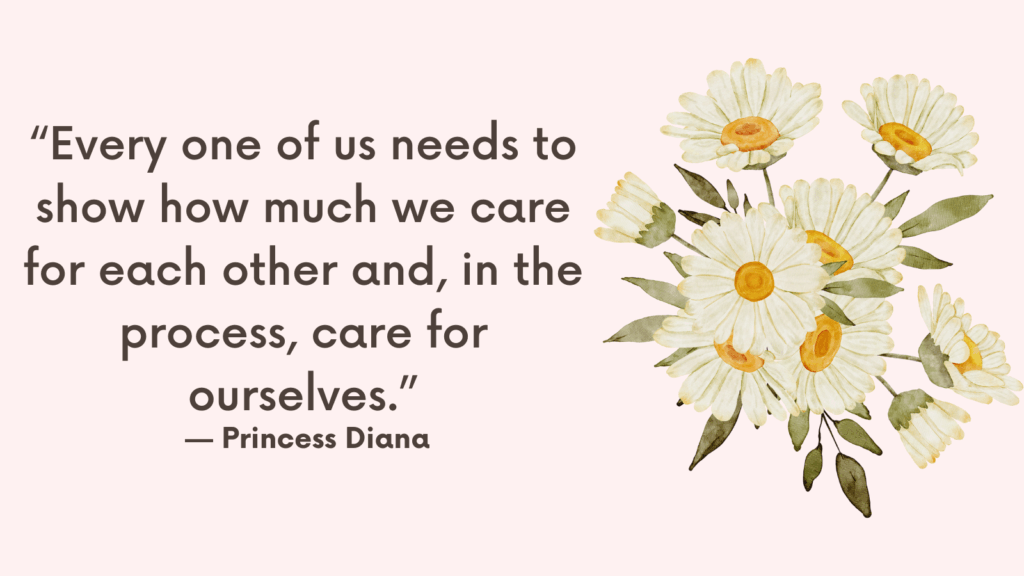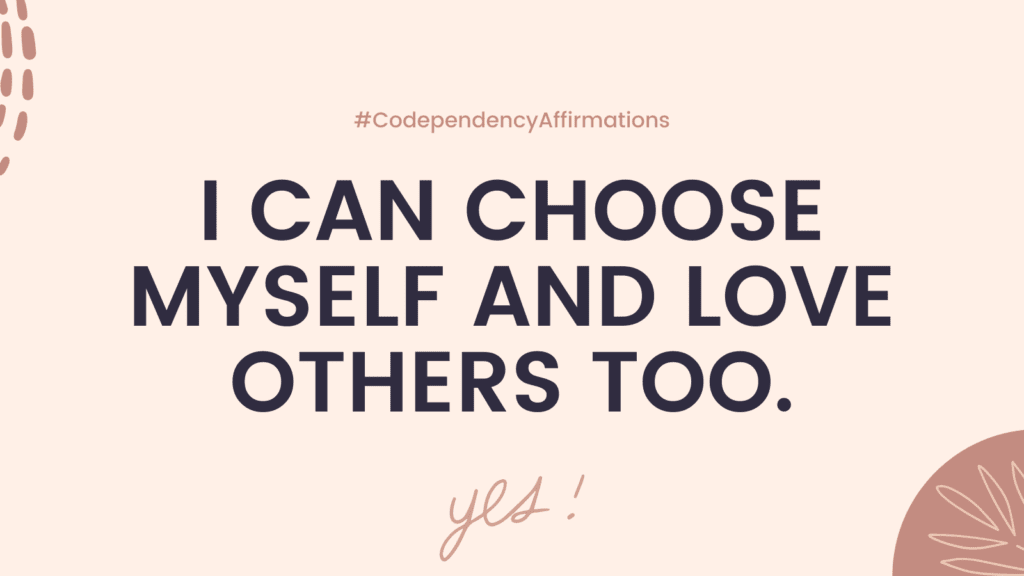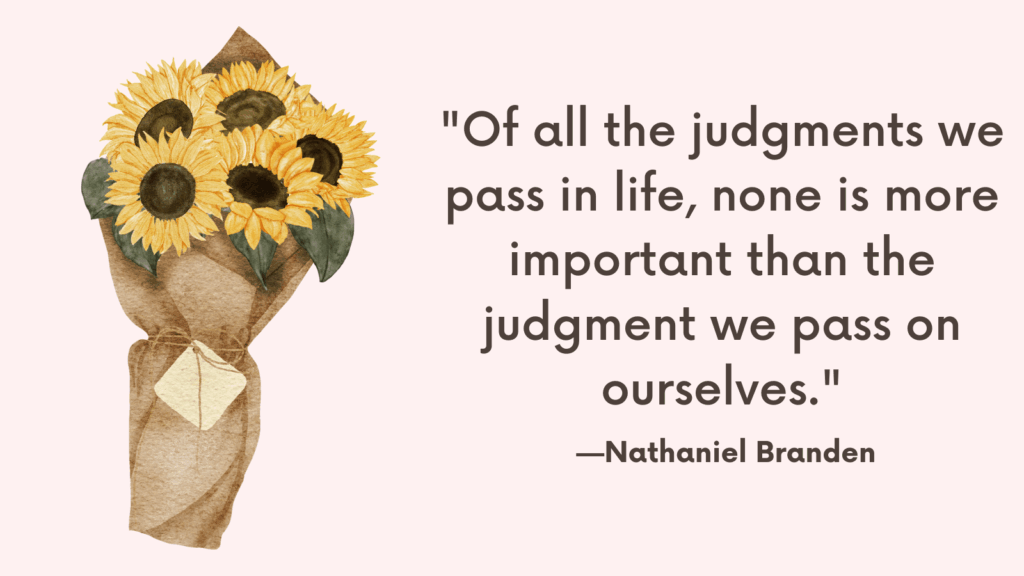In this post, you’re going to learn all about counterdependency – its signs and how to overcome it.
What Is Counterdependency?
Counterdependency refers to a pattern of behavior characterized by an excessive focus on independence, self-reliance, and avoidance of emotional intimacy or dependency on others.
It is often considered as a response or defense mechanism developed in response to past experiences of feeling overwhelmed, ignored, or controlled in relationships.
6 Signs of Counterdependency
Here are some key characteristics and behaviors associated with counterdependency:
1. Emotional Avoidance
Counterdependent individuals tend to avoid emotional vulnerability and may have difficulty expressing their emotions or seeking support from others.
They may perceive emotional connection as a sign of weakness or fear becoming dependent on others.
2. Extreme Independence
Counterdependent individuals prioritize independence and self-sufficiency above all else.
They may resist relying on others, even in situations where help or support would be beneficial.
This can lead to a reluctance to ask for assistance or accept it when offered.
3. Fear of Intimacy
Counterdependent individuals often struggle with forming deep and meaningful emotional connections.
They may feel uncomfortable or threatened by closeness, fearing loss of control or being consumed by the relationship.
Related: Fear of Engulfment: What It Is & How to Overcome It
4. Control and Defensiveness
Counterdependency can manifest as a need for control in relationships, as individuals strive to protect themselves from potential emotional harm.
They may be quick to defend their boundaries and resist any perceived intrusion or attempts at emotional connection.
5. Difficulty Trusting Others
Counterdependent individuals may have difficulty trusting others due to past experiences of feeling betrayed or let down.
This can lead to a generalized skepticism towards people’s intentions and a tendency to keep others at arm’s length.
6. Self-Reliance and Perfectionism
Counterdependent individuals often place high expectations on themselves and strive for perfection in various areas of life.
They may have difficulty delegating tasks or seeking assistance, believing that they must handle everything themselves.
It is important to note that counterdependency exists on a spectrum, and not all individuals will exhibit all of these characteristics.
Related: How To Break Codependency Habits For Good? (+FREE Codependency Worksheets)
9 Ways to Overcome Counterdependency
Overcoming counterdependency involves a combination of self-reflection, self-compassion, and developing healthier patterns of relating to others.
Here are some strategies that may help you in your journey towards overcoming counterdependency:
#1. Recognize and accept the pattern
The first step is to acknowledge and accept the presence of counterdependency in your life.
Self-awareness is crucial for initiating change.
Learn about counterdependency and its characteristics to understand how it manifests in your life.
Explore books, articles, or seek professional resources that can provide insights into the patterns, causes, and effects of counterdependency.
Engage in introspection to examine your own behavior and emotional patterns.
Reflect on past experiences and relationships where you may have exhibited counterdependent tendencies.
Developing self-awareness can help you identify recurring patterns and triggers.
Recognize the underlying factors that contribute to your counterdependent behaviors. These may stem from:
1. Childhood trauma or neglect: Early experiences of abuse, neglect, or inconsistent caregiving can lead to the development of counterdependent behaviors as a defense mechanism.
2. Attachment difficulties: Insecure or disorganized attachment styles, often resulting from inconsistent or unpredictable parenting, can contribute to counterdependency patterns.
3. Enmeshed family dynamics: Growing up in families with blurred boundaries, where individual autonomy is not respected, can lead individuals to develop counterdependent tendencies as a means of self-preservation.
4. Codependent relationships: Being in codependent relationships, where one partner is excessively reliant on the other for emotional well-being, can sometimes trigger counterdependent behaviors in response.
5. Fear of vulnerability: Individuals with counterdependency may fear being vulnerable or dependent on others due to past experiences of rejection or betrayal, leading them to overemphasize independence and self-reliance.
6. Low self-esteem: A lack of healthy self-esteem can contribute to counterdependency, as individuals seek validation and worth from external sources rather than cultivating a strong sense of self-worth.
7. Excessive focus on achievement: Placing an exaggerated emphasis on personal achievements or accomplishments can be a coping mechanism for underlying feelings of inadequacy or a need to prove one’s worth independently.
8. Unresolved emotional wounds: Past traumas or unresolved emotional wounds, such as abandonment, loss, or betrayal, can contribute to counterdependency by creating a fear of intimacy and reliance on others.
9. Personality traits or temperament: Certain personality traits, such as high levels of self-reliance, independence, or an intense fear of being controlled, can predispose individuals to counterdependency.
10. Cultural or societal influences: Societal expectations that emphasize individualism, self-sufficiency, and independence can contribute to the development of counterdependent behaviors as individuals strive to meet societal norms or avoid perceived weakness.
Understanding these root causes can aid in addressing them more effectively.
Related: People Pleaser Quiz (+Top 21 Proven Ways to Stop People Pleasing)
#2. Develop self-compassion
Counterdependent individuals often struggle with self-criticism and perfectionism.
Practice self-compassion by acknowledging and accepting your vulnerabilities, mistakes, and limitations.
Treat yourself with kindness, understanding, and patience, just as you would treat a close friend or loved one.
The following are some self-compassionate statements you can repeat to yourself:
- “I recognize that my independence is a strength, but it’s okay to ask for support and rely on others when needed.”
- “I acknowledge that vulnerability is a natural part of being human, and it’s okay to show my emotions and ask for help.”
- “I forgive myself for any past mistakes or perceived weaknesses. I am constantly growing and learning.”
- “I release any expectations of perfection and embrace the journey of self-discovery and self-acceptance.”
- “I give myself permission to be kind to myself, to rest when I need it, and to practice self-care without judgment.”
- “I understand that true strength comes from connecting with others and allowing myself to receive their support.”
- “I let go of the need to control everything and trust in the process of life, knowing that I am capable of handling whatever comes my way.”
Related: How To Be Gentle With Yourself? Top 5 Ways To Practice Self-Compassion
#3. Challenge negative beliefs
Counterdependency is often rooted in deep-seated beliefs about dependence and independence.
Examine the beliefs you hold about relationships, emotional needs, and vulnerability.
Question the validity of these beliefs and challenge them by seeking alternative perspectives.
The following are some common negative beliefs related to counterdependency:
1. “I don’t need anyone”: Counterdependence can lead to a belief that self-reliance is the only way to operate. However, humans are social beings, and we all have basic emotional needs for connection and support.
2. “Dependency is weakness”: Rather than viewing dependency as a weakness, consider it as a normal part of being human. We all have needs, and relying on others is not a sign of weakness but rather an acknowledgment of our interdependence. It takes strength and courage to recognize and express our needs, consequently allowing others to show care and support.
3. “Emotional intimacy is dangerous”: While there may be risks associated with emotional intimacy due to past experiences, it is important to remember that those experiences do not define every relationship. Working through past traumas with a skilled therapist can help build a sense of trust and safety, enabling you to form healthier and more fulfilling emotional connections.
4. “I must be in control”: Recognize that control is an illusion; no one has absolute control over everything. Embracing a more balanced view of control allows for collaboration and shared decision-making within relationships. Trusting others and allowing them to contribute can lead to more satisfying connections and shared responsibilities.
5. “I am better off alone”: Though independence can feel empowering, human beings thrive in connections and relationships. Acknowledge the benefits of companionship, support, and shared experiences that come with building meaningful relationships. Explore the idea that relationships can enhance your life rather than diminish it.
6. “Vulnerability is unsafe”: Understand that vulnerability is an essential aspect of building trust and deepening connections with others. While it can feel uncomfortable at times, opening up and expressing emotions allows for authentic and genuine interactions. Recognize that vulnerability is an act of bravery, not weakness, as it fosters deeper understanding and empathy between individuals.
Related: Negative Core Beliefs List (& 8 Tips On How To Challenge Them)
#4. Cultivate emotional awareness
Develop your emotional intelligence by actively paying attention to your feelings.
Learn to identify and express your emotions in a healthy manner.
Set aside time to reflect on your emotions regularly.
Ask yourself questions like: What am I feeling right now? Why do I think I’m feeling this way? What triggered this emotion?
Taking the time to explore your emotions can provide valuable insights into your inner experiences.
Practice labeling your emotions instead of simply categorizing them as “good” or “bad.”
Try to find more specific words to describe your feelings, such as “frustrated,” “excited,” or “anxious.”
This helps to increase your emotional vocabulary and build a deeper understanding of your emotional landscape.
Emotions carry valuable information about our needs, desires, and values.
When you experience an emotion, ask yourself what it might be trying to communicate.
For example, if you feel anger, it could indicate a boundary violation or a need for assertiveness.
Related: How To Feel Your Feelings? Top 9 Difficult Emotions To Cope With In Healthy Ways
#5. Establish healthy boundaries
Counterdependent individuals often struggle with boundaries, either being too rigid or too porous.
Work on establishing clear and healthy boundaries in your relationships.
Take some time to reflect on your current boundaries and their origins.
Ask yourself why you have set these boundaries and whether they are serving you well or holding you back.
Understanding the underlying reasons can help you identify areas where you might need to make adjustments.
Letting go of rigid boundaries may trigger feelings of guilt, fear, or anxiety.
Acknowledge these emotions but also remind yourself that it is healthy and necessary to set boundaries.
Challenge any negative beliefs or thoughts that may arise and practice self-compassion.
Related: Top 25 Tips On How To Set Boundaries In A Toxic Relationship? (+FREE Worksheets PDF)
#6. Practice vulnerability gradually
Step out of your comfort zone and gradually practice vulnerability with safe individuals in your life.
By allowing yourself to be vulnerable, you can foster deeper connections and intimacy in your relationships.
Begin by exploring your fears or resistance towards vulnerability. Reflect on past experiences that may have influenced your guardedness.
Understanding your own barriers can provide insights into areas where you can gradually open up.
Seek out relationships with people whom you feel comfortable sharing your emotions, thoughts, and vulnerabilities.
These individuals should be trustworthy, non-judgmental, and supportive.
Gradually opening up to them can help foster a sense of emotional safety.
Begin by sharing less vulnerable aspects of yourself before gradually sharing deeper emotions and thoughts.
This step-by-step approach allows you to build trust and gauge the response of others, increasing your comfort with vulnerability over time.
Recognize that vulnerability often involves embracing imperfections and acknowledging that it is a normal part of being human.
Allow yourself to make mistakes, be authentic, and learn from these experiences.
Cultivating self-compassion can help alleviate the fear of being judged or rejected.
If past experiences or emotional wounds make it particularly challenging to practice vulnerability, consider seeking guidance from a therapist or counselor. They can provide valuable support, tools, and insights to help you navigate these difficulties.
Related: Emotional Intimacy Test (+13 Tips On How To Increase Emotional Intimacy In A Relationship?)
#7. Develop a support network
Surround yourself with supportive individuals who can provide encouragement, empathy, and validation.
Seek out healthy relationships where there is mutual respect, trust, and reciprocity.
Engaging in group therapy or joining support groups can also be beneficial, as they provide opportunities to learn from others who may be going through similar struggles.
#8. Mindfulness and self-care
Engage in mindfulness practices such as meditation, deep breathing exercises, or journaling to cultivate self-awareness and reduce stress.
Prioritize self-care activities that promote your physical, emotional, and mental well-being.
This can include regular exercise, engaging in hobbies, spending time in nature, or connecting with loved ones.
Related: Best 6 Mindfulness Exercises For Beginners (+FREE Resources)
#9. Embrace interdependence
Counterdependency often emphasizes independence at the expense of healthy interdependence.
Recognize that healthy relationships involve a balance between independence and reliance on others.
Practice asking for help when needed, accepting support from others, and collaborating in problem-solving.
Embracing interdependence allows for more fulfilling and mutually satisfying relationships.

Conclusion
Overcoming counterdependency is a process that takes time, effort, and self-compassion.
Be patient with yourself and celebrate even small steps towards healthier relationship patterns.



